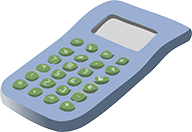Tax Deductions for Accounting Clerks

Dealing with numbers on a daily basis seems like it would make filing a tax return a little bit easier, but even as an accounting clerk, you still need to be careful with your calculations at tax time. Whether your job requires you to do data entry, manage appointments, assist other staff, or any other responsibility at an accounting firm, you'll expect to receive a Form W-2, Wage and Tax Statement from your employer. This form will list your wages and the amount taken in withholdings, and include information you need to file your tax return.
If you acquired job-related expenses throughout the tax year, you may be able to claim deductions, which can lower the amount you're expected to pay in taxes. You should have all receipts to serve as proof of your expenses, which may include:
- Trade publication and journal subscription fees
- Membership dues for professional affiliations
- Supplies and other equipment necessary to perform your job
- State and local government regulatory fees, including flat rate occupational taxes, as long as it's not paid for initial certification
Two educational credits are available to those in school, the Lifetime Learning Credit and American Opportunity Credit. The latter is only applicable to students enrolled in their first four years of schooling, working toward a degree, and must be enrolled at least half-time, and free of felony drug convictions. The Lifetime Learning Credit is available for any student, attending classes at a college, university, and trade school, without requirements to a degree or enrollment status.
If these educational credits are not applicable to you, work-related education expenses that are not reimbursed may be deductible. Generally, refresher courses, vocational classes, and new development classes for the industry are deductible. Courses that qualify you for a new trade, or those required to meet the minimum qualifications of the job are not-deductible.



